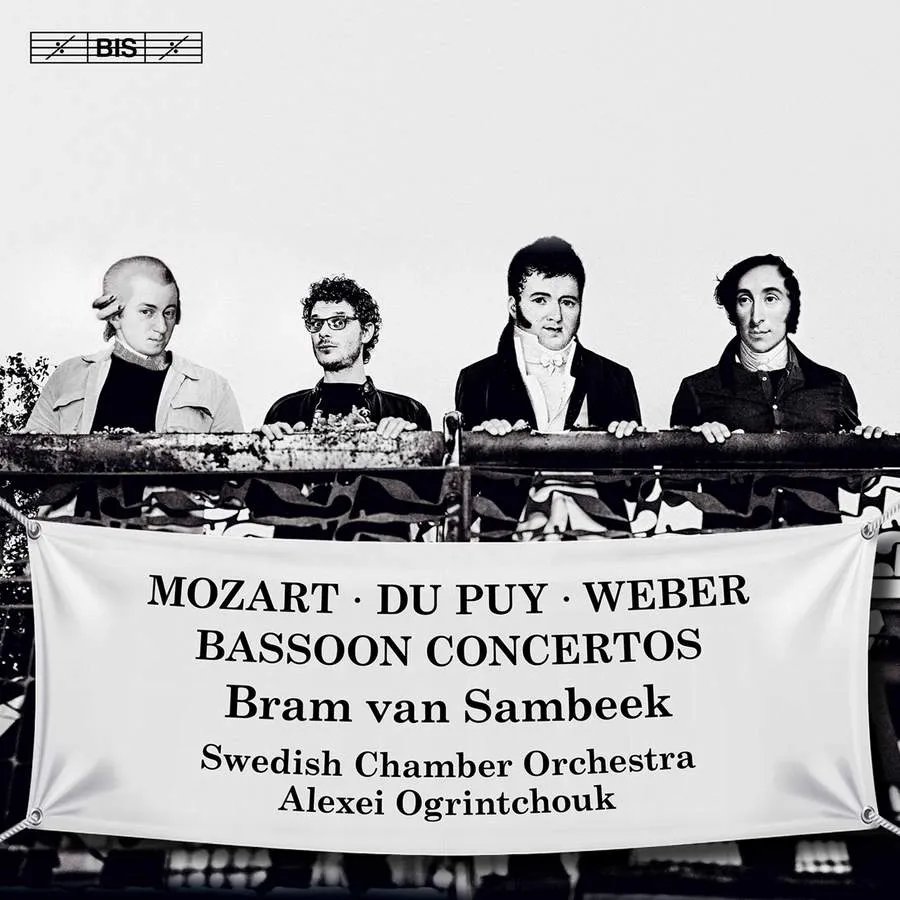
Du Puy • Mozart • Weber Mozart: Bassoon Concerto in B flat major, K191; Weber: Bassoon Concerto in F major, Op. 75; Du Puy: Bassoon Concerto in C minor Bram van Sambeek (bassoon); Swedish Chamber Orchestra/Alexei Ogrintchouk BIS BIS-2467 66:15 mins
In the slender repertoire of bassoon concertos, Mozart’s stands supreme. He was only 18 when he composed it, but its slow movement – scored with muted strings, and carrying the curious tempo marking of Andante ma Adagio – breathes the atmosphere of a much more mature piece. Scarcely less fine, though, is the slow movement of the concerto by Weber, which includes a lengthy passage for bassoon accompanied only by a pair of horns – as though to look forward to the forest world of Der Freischütz. The outer movements, unfortunately, aren’t really on the same level.
Bram van Sambeek’s research into the holdings of the Swedish National Library turned up the manuscript of an unpublished bassoon concerto by Édouard Du Puy, who was an exact contemporary of Beethoven. Besides being a composer, he was a successful singer who managed to get himself exiled from more than one country following affairs with aristocratic pupils. The concerto Van Sambeek plays is a substantial piece written for the famous Preumayr brothers, all three of whom established themselves as bassoonists in Sweden. It features a tragic slow introduction and an opening movement which is thereafter dominated by an insistent march rhythm. The agility of the bassoon part, brilliantly handled by Van Sambeek, has to be heard to be believed. Du Puy’s harmonic palette is fairly limited, and the jaunty finale in particular rather outstays its welcome, but this is still an interesting addition to the repertoire and the fine Swedish Chamber Orchestra, under the oboist and conductor Alexei Ogrintchouk, provide admirable support throughout.
Misha Donat
